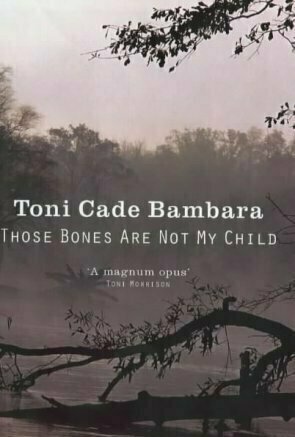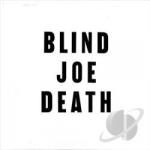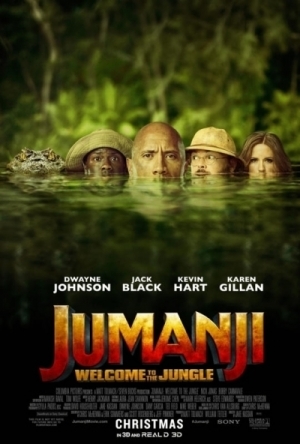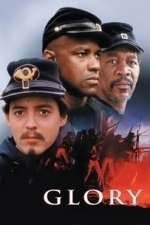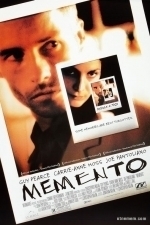Search
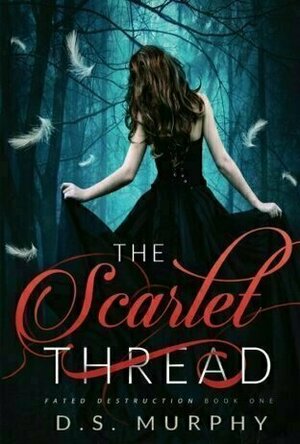
The Scarlet Thread (Fated Destruction, #1)
Book
My name Kaidance Monroe, and sometimes when I touch people, I see how they die. After I saw my...
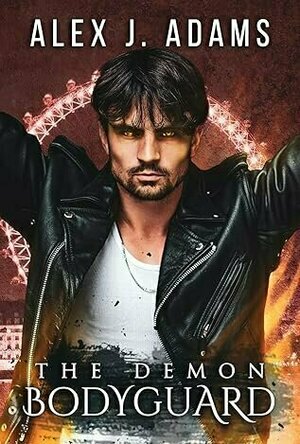
The Demon Bodyguard
Book
A fateful assignment leads to one fated mate! Zeke My brother, Mal, might have been happy to...
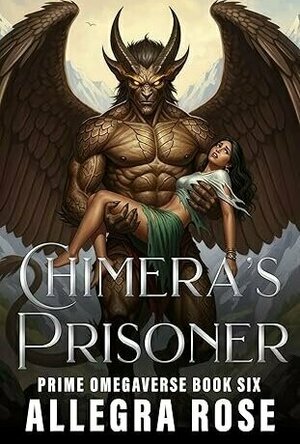
Chimera's Prisoner (Prime Omegaverse #6)
Book
She hid her omega status for years. Now she's been claimed by the one predator who owns the skies. ...
Dark Dub-Con Science Fiction Erotica
Hadley (567 KP) rated Those Bones Are Not My Child in Books
Nov 12, 2019
A different type of True Crime book (1 more)
Things you probably didn't know about the case
Writing transitions are confusing (1 more)
Smash poetry breaks up the flow
Toni Cade Bambara, a writer, documentary filmmaker and screenwriter, gives True Crime readers a unique viewpoint of the real Atlanta Child Murders. Bambara mostly writes from the eyes of Marzala, a mother of three whose oldest son goes missing during one of the worst murder sprees in Atlanta's history. Marzala and her family were not actual people during this time- - - all of them are based off of parents and siblings of the real victims. Not soon after Marzala does everything she can with the police to find her son, she joins a group of African-Americans that are outraged by the lack of progress to catch who is killing Atlanta's black children. This group forms what is called STOP (a citizen-run task force). For the majority of the book, Marzala with most of the black community in the area typed out letters to prominent government officials asking for help to stop the murders, also using Vietnam vets in the area to use their tracking skills to keep an eye on suspects, and investigating buildings that police refused to believe had anything to do with the childrens' disappearances and/or murders, which Bambara did an amazing job putting all the real facts together of the actual community members that were involved with this at the time. This story is upsetting, but enlightening on how politics may have caused so many children to be murdered. This is a story no reader will ever forget.
Bambara writes not in a normal narrative - - - just telling a story from specific viewpoints, but she often breaks off into smash poetry to depict a character's state-of-mind, which, sometimes can be off putting for the reader, breaking the flow of the story. Yet, the use of smash poetry combined with the era and the heart breaking subject at hand, separates Those Bones Are Not My Child from every True Crime book I have ever read. But a note for fans of True Crime, this story is from the view point of the victims' families and the search they went through to try and catch the murderer(s), unlike most TC books, which follow the police through the investigation leading to, usually, the capture of the perpetrator. From living in Atlanta during the time of the murders, Bambara was able to reconstruct the life of a black family in 1980's Georgia, while focusing on the effect these terrible crimes had on the surrounding community. Bambara did an amazing job on what most writers cannot.
The amount of characters, specifically the fictional ones, are very well created. She describes just enough to give readers the ability to tell them apart, showing every now and then from their own viewpoints. Out of all the characters, I came to really like Zala's two other children: Kenti and Kofi. One particular scene shows the strain of Sonny's disappearance on their family: " Zala parked the comb again and sat back. 'Listen, you two.' Kofi dropped down onto his knees. 'The police and the newspapers don't know what the hell is going on, so they feel stupid, because they're supposed to know, they're trained to know, they're paid to know. It's their job. Understand? But it's hard for grown-ups to admit they're stupid, especially if they're professionals like police and reporters. So they blame the children. Or they ignore them and fill up the papers with the hostages in Iran. Understand? And now... Jesus... they've got people calling those kids juvenile delinquents.'
'Don't cry.' Kenti tried to lean into her lap and got pushed away.
'They don't know a damn thing and they act like they don't want to know. So they blame the kids 'cause they can't speak up for themselves. They say the kids had no business being outdoors, getting themselves in trouble.'
'You let us go outdoors.'
'Of course I do, baby. We go lots of places, 'cause a lot of people fought hard for our right to go any damn where we please. But when the children go out like they've a right to and some maniac grabs them, then it's the children's fault or the parents who should've been watching every minute, like we don't have to work like dogs just to put food on the table.'
Kofi walked on his knees towards the bed, but he didn't lean on her like he wanted 'cause she might push him away. So he just put his hand on the mattress next to hers."
During the Atlanta Child Murders, victims were random, except for that they were children from the same neighborhood, and they were African-American. At first, police didn't believe a serial murderer was going around abducting children, but rather that 'poor, broken' families were killing their own. In the Prologue, Bambara shows that the victims' families and private detectives came up with more ideas of the motive than the police did:
" White cops taking license in Black neighborhoods.
The Klan and other Nazi thugs on the rampage.
Diabolical scientists experimenting on Third World people.
Demonic cults engaging in human sacrifices.
A 'Nam vet unable to make the transition.
UFO aliens conducting exploratory surgery.
Whites avenging Dewey Baugus, a white youth beaten to death in spring '79, allegedly by Black youths.
Parents of a raped child running amok with 'justice.'
Porno filmmakers doing snuff flicks for entertainment.
A band of child molesters covering their tracks.
New drug forces killing the young (unwitting?) couriers of the old in a bid for turf.
Unreconstructed peckerwoods trying to topple the Black administration.
Plantation kidnappers of slave labor issuing the pink slip.
White mercenaries using Black targets to train death squadrons for overseas jobs and for domestic wars to come. "
All of these theories are explored with evidence in Those Bones Are Not My Child. One scene in Part III, Zala's cop friend, B.J. shows up to her house to tell her to stop bringing attention to the investigation, " 'That Eubanks woman - - - your husband's friend? - - - she said you were bringing in the TV networks to blow the case open. I thought we had an agreement to keep each other informed. This morning I find out through the grapevine that you parents got a medium stashed in a hotel here in town, some woman who's been making headlines up north with cases that supposedly have the authorities stumped. If you knew how much work has been done on this case - - - no, listen, don't interrupt me. Then I find out - - - and not from you - - - that some of you parents are planning to tour the country cracking on the investigation. That's not too smart. And you should have told me.' " These two may have been fictional characters, but in Bambara's Acknowledgments, she states that all scenarios were true, and that she made B.J. to tell about the actual police officers who were involved with the investigation.
The tension between the police and the public is felt throughout the entire story. Despite all of the work the citizen task force put in, police arrested a man named Wayne Williams for the murder of two adult victims (who, due to their mental age, which was stated to be that of children, were placed on the victims' list of the Atlanta Child Murders): " Wayne Williams, charged with the murder of twenty-seven-year-old Nathaniel Cater and implicated in the murder of the other adults and children on the official list..." Zala, having worked for almost a year at the STOP offices, she, along with most of the community, doubt that Williams was a lone killer or even the killer at all. Williams never stood trial for the childrens' murders, but the police informed the public that he did it, case closed - - - although, after Williams' arrest, children were still being abducted and their bodies were still being found. Even after Williams' trial and the guilty verdict for two adult victims, some people stuck around to continue to investigate and claim Williams a 'scapegoat' of politics: " There were still pockets of interest and people who wouldn't let the case go. James Baldwin had been coming to town off and on; a book was rumored. Sondra O'Neale, the Emory University professor, hadn't abandoned her research, either. From time to time, TV and movie types were in the city poking around for an angle. Camille Bell was moving to Tallahassee to write up the case from the point of view of the STOP committee. The vets had taken over The Call now that Speaker was working full-time with the Central American Committee. The Revolutionary Communist Party kept running pieces on the case in the Revolutionary Worker. Whenever Abby Mann sent down a point man for his proposed TV docudrama, the Atlanta officials and civil rights leaders would go off the deep end. " At the end of it all, the questions still remain: did Williams kill all of those children by himself? Was he part of a pornographic cult that killed the children? Or is Williams completely innocent, and the murderer(s) are still out there? In Those Bones Are Not My Child, I guarantee you will be left questioning if the police were right.
All in all, the writing transitions can become confusing sometimes, especially the interludes of smash poetry, but I highly recommend this book to people who like the True Crime genre, especially of any interest in this specific case.
Bambara writes not in a normal narrative - - - just telling a story from specific viewpoints, but she often breaks off into smash poetry to depict a character's state-of-mind, which, sometimes can be off putting for the reader, breaking the flow of the story. Yet, the use of smash poetry combined with the era and the heart breaking subject at hand, separates Those Bones Are Not My Child from every True Crime book I have ever read. But a note for fans of True Crime, this story is from the view point of the victims' families and the search they went through to try and catch the murderer(s), unlike most TC books, which follow the police through the investigation leading to, usually, the capture of the perpetrator. From living in Atlanta during the time of the murders, Bambara was able to reconstruct the life of a black family in 1980's Georgia, while focusing on the effect these terrible crimes had on the surrounding community. Bambara did an amazing job on what most writers cannot.
The amount of characters, specifically the fictional ones, are very well created. She describes just enough to give readers the ability to tell them apart, showing every now and then from their own viewpoints. Out of all the characters, I came to really like Zala's two other children: Kenti and Kofi. One particular scene shows the strain of Sonny's disappearance on their family: " Zala parked the comb again and sat back. 'Listen, you two.' Kofi dropped down onto his knees. 'The police and the newspapers don't know what the hell is going on, so they feel stupid, because they're supposed to know, they're trained to know, they're paid to know. It's their job. Understand? But it's hard for grown-ups to admit they're stupid, especially if they're professionals like police and reporters. So they blame the children. Or they ignore them and fill up the papers with the hostages in Iran. Understand? And now... Jesus... they've got people calling those kids juvenile delinquents.'
'Don't cry.' Kenti tried to lean into her lap and got pushed away.
'They don't know a damn thing and they act like they don't want to know. So they blame the kids 'cause they can't speak up for themselves. They say the kids had no business being outdoors, getting themselves in trouble.'
'You let us go outdoors.'
'Of course I do, baby. We go lots of places, 'cause a lot of people fought hard for our right to go any damn where we please. But when the children go out like they've a right to and some maniac grabs them, then it's the children's fault or the parents who should've been watching every minute, like we don't have to work like dogs just to put food on the table.'
Kofi walked on his knees towards the bed, but he didn't lean on her like he wanted 'cause she might push him away. So he just put his hand on the mattress next to hers."
During the Atlanta Child Murders, victims were random, except for that they were children from the same neighborhood, and they were African-American. At first, police didn't believe a serial murderer was going around abducting children, but rather that 'poor, broken' families were killing their own. In the Prologue, Bambara shows that the victims' families and private detectives came up with more ideas of the motive than the police did:
" White cops taking license in Black neighborhoods.
The Klan and other Nazi thugs on the rampage.
Diabolical scientists experimenting on Third World people.
Demonic cults engaging in human sacrifices.
A 'Nam vet unable to make the transition.
UFO aliens conducting exploratory surgery.
Whites avenging Dewey Baugus, a white youth beaten to death in spring '79, allegedly by Black youths.
Parents of a raped child running amok with 'justice.'
Porno filmmakers doing snuff flicks for entertainment.
A band of child molesters covering their tracks.
New drug forces killing the young (unwitting?) couriers of the old in a bid for turf.
Unreconstructed peckerwoods trying to topple the Black administration.
Plantation kidnappers of slave labor issuing the pink slip.
White mercenaries using Black targets to train death squadrons for overseas jobs and for domestic wars to come. "
All of these theories are explored with evidence in Those Bones Are Not My Child. One scene in Part III, Zala's cop friend, B.J. shows up to her house to tell her to stop bringing attention to the investigation, " 'That Eubanks woman - - - your husband's friend? - - - she said you were bringing in the TV networks to blow the case open. I thought we had an agreement to keep each other informed. This morning I find out through the grapevine that you parents got a medium stashed in a hotel here in town, some woman who's been making headlines up north with cases that supposedly have the authorities stumped. If you knew how much work has been done on this case - - - no, listen, don't interrupt me. Then I find out - - - and not from you - - - that some of you parents are planning to tour the country cracking on the investigation. That's not too smart. And you should have told me.' " These two may have been fictional characters, but in Bambara's Acknowledgments, she states that all scenarios were true, and that she made B.J. to tell about the actual police officers who were involved with the investigation.
The tension between the police and the public is felt throughout the entire story. Despite all of the work the citizen task force put in, police arrested a man named Wayne Williams for the murder of two adult victims (who, due to their mental age, which was stated to be that of children, were placed on the victims' list of the Atlanta Child Murders): " Wayne Williams, charged with the murder of twenty-seven-year-old Nathaniel Cater and implicated in the murder of the other adults and children on the official list..." Zala, having worked for almost a year at the STOP offices, she, along with most of the community, doubt that Williams was a lone killer or even the killer at all. Williams never stood trial for the childrens' murders, but the police informed the public that he did it, case closed - - - although, after Williams' arrest, children were still being abducted and their bodies were still being found. Even after Williams' trial and the guilty verdict for two adult victims, some people stuck around to continue to investigate and claim Williams a 'scapegoat' of politics: " There were still pockets of interest and people who wouldn't let the case go. James Baldwin had been coming to town off and on; a book was rumored. Sondra O'Neale, the Emory University professor, hadn't abandoned her research, either. From time to time, TV and movie types were in the city poking around for an angle. Camille Bell was moving to Tallahassee to write up the case from the point of view of the STOP committee. The vets had taken over The Call now that Speaker was working full-time with the Central American Committee. The Revolutionary Communist Party kept running pieces on the case in the Revolutionary Worker. Whenever Abby Mann sent down a point man for his proposed TV docudrama, the Atlanta officials and civil rights leaders would go off the deep end. " At the end of it all, the questions still remain: did Williams kill all of those children by himself? Was he part of a pornographic cult that killed the children? Or is Williams completely innocent, and the murderer(s) are still out there? In Those Bones Are Not My Child, I guarantee you will be left questioning if the police were right.
All in all, the writing transitions can become confusing sometimes, especially the interludes of smash poetry, but I highly recommend this book to people who like the True Crime genre, especially of any interest in this specific case.
Lee Ronaldo recommended Blind Joe Death by John Fahey in Music (curated)
Justin Taylor (59 KP) rated Jumanji: Welcome to the Jungle (2017) in Movies
Oct 29, 2018
The action pieces were kinda on point (4 more)
Of course the Rock kills it as usual and brings his a game or at least tries his best
The trio of Kevin Hart, Karen Gillan and Jack Black are the best things about this movie
It does something original with the source material
A good movie to sit down and eat popcorn to
Although this is a sequel to Jumanji yeah in case y'all didn't know it's a sequel and outside of a couple of references including a name-drop of Robin Williams character from the original it has nothing to do with the first (2 more)
Also basic plot getting sucked into a video game which is a plot that we have seen in Many other things (Spy Kids, Tron and fairly odd parents to name a few) and while it does it in a fresh way at the end of the day it's the exact same plot from the first
The villain is pretty much meh but if u like Jumanji I think you probably have no problem with him
Jumanji was passable
Contains spoilers, click to show
Ok this movie ain't perfect but it did do it's purpose and I personally thought it wasn't bad,
Too be honest I wasn't crazy about a Jumanji sequel especially after the late great Robin Williams passed away. But they did some things good and some things not so good so I'll start with the good first
1. It does something fresh with the original so in case you haven't seen it spoiler warning the board game we all know and love turned into a video game which is something I was kinda expecting but I wasn't surprised and it was nice seeing it getting updated for a new generation
2. The characters in the Jumanji world are hilariously entertaining with props particularly to Karen Gillan and Jack Black..they bring it in this movie and they had me laughing my butt off. Not totally saying that the Rock and Kevin Hart weren't funny either but they all are great
3 the action sequences are awesomely executed and exciting as it should be. Nothing more to say.
Now for the bad
1. Elephant in the room, the plot, ok so getting stuck in a video game is something that's been done to death but they do something creative with it but at the end of the day it's the exact same plot of the first movie.
2. The villains pretty much meh, he's your standard I'm gonna take what I want and no one can stop me type villain and yes in case your wondering his last name is van pelt.
3. Speaking of homages to the first movie don't expect too much outside of a couple of references including a name drop of Williams character from the original movie it has nothing to do with the first movie so it's like a standalone sequel and a soft reboot which means the events of the original still exist but they're pretty much making some retcons.
Overall I didn't hate this movie, I laughed at anything but I think if u take ur nostalgia glasses off and watch it with a new point of view youll enjoy it also this movie did something right because its getting a sequel next year
Too be honest I wasn't crazy about a Jumanji sequel especially after the late great Robin Williams passed away. But they did some things good and some things not so good so I'll start with the good first
1. It does something fresh with the original so in case you haven't seen it spoiler warning the board game we all know and love turned into a video game which is something I was kinda expecting but I wasn't surprised and it was nice seeing it getting updated for a new generation
2. The characters in the Jumanji world are hilariously entertaining with props particularly to Karen Gillan and Jack Black..they bring it in this movie and they had me laughing my butt off. Not totally saying that the Rock and Kevin Hart weren't funny either but they all are great
3 the action sequences are awesomely executed and exciting as it should be. Nothing more to say.
Now for the bad
1. Elephant in the room, the plot, ok so getting stuck in a video game is something that's been done to death but they do something creative with it but at the end of the day it's the exact same plot of the first movie.
2. The villains pretty much meh, he's your standard I'm gonna take what I want and no one can stop me type villain and yes in case your wondering his last name is van pelt.
3. Speaking of homages to the first movie don't expect too much outside of a couple of references including a name drop of Williams character from the original movie it has nothing to do with the first movie so it's like a standalone sequel and a soft reboot which means the events of the original still exist but they're pretty much making some retcons.
Overall I didn't hate this movie, I laughed at anything but I think if u take ur nostalgia glasses off and watch it with a new point of view youll enjoy it also this movie did something right because its getting a sequel next year
Debbiereadsbook (1669 KP) rated Imagine (Black Raven #4) in Books
Dec 27, 2018
too much action but still good.
Independent reviewer for Archaeolibrarian, I was gifted my copy of this book.
After THAT kiss on Halloween, Leo and Ace have been avoiding the issue.Or rather, Leo has, and it's all Ace has on his mind. Sent together with a team of Black Raven agents undercover on a gambling cruise liner's maiden voyage, they are thrown into the thick of things, with so much left unsaid.
This is book 4 in the Black Raven series, but you don't need to have read the other three for this to make sense, they can all be read as stand alone novels. Books one and three are five star reads from me, though.
But this one?? Not so much and I've no idea why! And ya'll know how much that pains me so! maybe it will come as I write this up.
Leo is emotionally stunted after the death of her father on 9/11. She doesn't wanna talk to Ace about what happened on Halloween but she has been thinking about it. Ace is her best friend, has been since they started working together. That kiss, though, changes everything for them both. Ace wants to move the relationship on, but they have a job to do first. Feelings for your partner cannot get in the way of a job. But they have a way of worming in, and Leo can see those feelings in Ace's eyes, even if he doesn't want her to see.
Told mostly from Leo and Ace's point of view, we also get some of the bad guy in a couple of places, and in the other two books I've read in this series, I loved that. Those bad guys are deeply twisted, and were difficult to read, but it's more of less why I gave those two books 5 stars: the connection I had to the minds of those bad guys. But something didn't quite work here, for me. While clearly insanely greedy (cos it's all about the money) and a lot screwed in the head (cos a LOT of people will die) I didn't feel any connection to the bad guy at all. That makes ME sound a lot twisted in my head, but I think you know what I mean. There seemed to be no background as to WHY (other than the money) the bad guy was doing this, what made them want to blow up a brand spanking new ship, and kill all those people? I needed some background and I didn't get it.
This book is HEAVY on the agents work. A little bit too much for me, I think. I got lost when they were running around the ship cos I have no idea what half of those ship terms meant!
AND!! It's only the first part of Leo and Ace's story. They are Happy For Now, and I do hope they get their Happy Ever After in the next book. Ain't gonna be plain sailing for them I know that much!
So, because on the lack of connection to the bad guy, and because of the heavy action (which gives me the WHY I didn't enjoy this one quite so much) . . .
4 stars, still a really good read, just not on a par with books one and three.
**same worded review will appear elsewhere**
After THAT kiss on Halloween, Leo and Ace have been avoiding the issue.Or rather, Leo has, and it's all Ace has on his mind. Sent together with a team of Black Raven agents undercover on a gambling cruise liner's maiden voyage, they are thrown into the thick of things, with so much left unsaid.
This is book 4 in the Black Raven series, but you don't need to have read the other three for this to make sense, they can all be read as stand alone novels. Books one and three are five star reads from me, though.
But this one?? Not so much and I've no idea why! And ya'll know how much that pains me so! maybe it will come as I write this up.
Leo is emotionally stunted after the death of her father on 9/11. She doesn't wanna talk to Ace about what happened on Halloween but she has been thinking about it. Ace is her best friend, has been since they started working together. That kiss, though, changes everything for them both. Ace wants to move the relationship on, but they have a job to do first. Feelings for your partner cannot get in the way of a job. But they have a way of worming in, and Leo can see those feelings in Ace's eyes, even if he doesn't want her to see.
Told mostly from Leo and Ace's point of view, we also get some of the bad guy in a couple of places, and in the other two books I've read in this series, I loved that. Those bad guys are deeply twisted, and were difficult to read, but it's more of less why I gave those two books 5 stars: the connection I had to the minds of those bad guys. But something didn't quite work here, for me. While clearly insanely greedy (cos it's all about the money) and a lot screwed in the head (cos a LOT of people will die) I didn't feel any connection to the bad guy at all. That makes ME sound a lot twisted in my head, but I think you know what I mean. There seemed to be no background as to WHY (other than the money) the bad guy was doing this, what made them want to blow up a brand spanking new ship, and kill all those people? I needed some background and I didn't get it.
This book is HEAVY on the agents work. A little bit too much for me, I think. I got lost when they were running around the ship cos I have no idea what half of those ship terms meant!
AND!! It's only the first part of Leo and Ace's story. They are Happy For Now, and I do hope they get their Happy Ever After in the next book. Ain't gonna be plain sailing for them I know that much!
So, because on the lack of connection to the bad guy, and because of the heavy action (which gives me the WHY I didn't enjoy this one quite so much) . . .
4 stars, still a really good read, just not on a par with books one and three.
**same worded review will appear elsewhere**
Darren (1599 KP) rated Black Christmas (2019) in Movies
Dec 13, 2019
Verdict: All Over the Place
Story: Black Christmas starts as we meet our sorority sisters Riley (Poots), Kris (Shannon), Marty (Donoghue), Jesse (O’Grady), Helena (Adams) and Fran (Morris) who are preparing for the Christmas break, with Riley having history with the alpha sorority, which never got dealt with by the authorities.
They decide to get revenge through song and soon find themselves getting picked of by a masked killer, where they need to find themselves fighting to survive.
Thoughts on Black Christmas
Characters – Riley is previously a victim of sexual assault by one of the rich college students, 3-years-later she is still dealing with the effects, being the big sister to the rest of the sisters and is one of the few that worries about the locations of the other girls. Kris has been on a crusade to get equality, she spends most of the time preaching about how men have it easy and mostly gets annoying. Marty is another member of the sorority and like Jesse, we don’t learn much more about any of the other girls.
Performances – Imogen Poots is a talent actress when she is given something to work with, she is the strongest of a weak story, where nobody comes off like they are giving a good acting performance.
Story – The story is meant to be following a group of sorority sisters that get picked off and attacked by a masked killer over the Christmas break. Well, where do we start to break this story down, first thing, this isn’t any sort of remake or sequel to either movie seen before, it uses the location of the house and one look at a death, don’t think this is a remake. Secondly, we spend more time trying to get the message over about men thinking they can walk all over women and the only good men in life are nervous wrecks around the women. Thirdly, this is meant to be a horror and doesn’t even know what tone to stick to. Finally, the trailer gives away everything. This is a social message that uses an existing horror franchise to try and get a point over, without using any sort of subtitle approach.
Horror/Mystery – The horror in this film is almost non-excitant, it tries to use the slow slasher traits early on, which show glimpses, only to go, ‘you know what, we want to do an action horror now’ by the end. The mystery is also poor, because we get zero potential suspects and the only person it could be is revealed in the trailer.
Settings – The college location is fine, though it is the weird college I have ever seen.
Special Effects – When it comes to the effects, we get basic horror ones, sadly, the film decides to hide away from showing any actual gore, even though the injuries are designed to show it.
Scene of the Movie – Nate grabs an axe.
That Moment That Annoyed Me – The girls leave a party at what they say is midnight, we cut to one that left early and it is suddenly 10.45, seriously can people not tell the time?
Final Thoughts – This is a very bad social message horror that spends more time banging you over the head with the message, than actually giving us a coherent story or any scare.
Overall: Social Message, without a scare.
Story: Black Christmas starts as we meet our sorority sisters Riley (Poots), Kris (Shannon), Marty (Donoghue), Jesse (O’Grady), Helena (Adams) and Fran (Morris) who are preparing for the Christmas break, with Riley having history with the alpha sorority, which never got dealt with by the authorities.
They decide to get revenge through song and soon find themselves getting picked of by a masked killer, where they need to find themselves fighting to survive.
Thoughts on Black Christmas
Characters – Riley is previously a victim of sexual assault by one of the rich college students, 3-years-later she is still dealing with the effects, being the big sister to the rest of the sisters and is one of the few that worries about the locations of the other girls. Kris has been on a crusade to get equality, she spends most of the time preaching about how men have it easy and mostly gets annoying. Marty is another member of the sorority and like Jesse, we don’t learn much more about any of the other girls.
Performances – Imogen Poots is a talent actress when she is given something to work with, she is the strongest of a weak story, where nobody comes off like they are giving a good acting performance.
Story – The story is meant to be following a group of sorority sisters that get picked off and attacked by a masked killer over the Christmas break. Well, where do we start to break this story down, first thing, this isn’t any sort of remake or sequel to either movie seen before, it uses the location of the house and one look at a death, don’t think this is a remake. Secondly, we spend more time trying to get the message over about men thinking they can walk all over women and the only good men in life are nervous wrecks around the women. Thirdly, this is meant to be a horror and doesn’t even know what tone to stick to. Finally, the trailer gives away everything. This is a social message that uses an existing horror franchise to try and get a point over, without using any sort of subtitle approach.
Horror/Mystery – The horror in this film is almost non-excitant, it tries to use the slow slasher traits early on, which show glimpses, only to go, ‘you know what, we want to do an action horror now’ by the end. The mystery is also poor, because we get zero potential suspects and the only person it could be is revealed in the trailer.
Settings – The college location is fine, though it is the weird college I have ever seen.
Special Effects – When it comes to the effects, we get basic horror ones, sadly, the film decides to hide away from showing any actual gore, even though the injuries are designed to show it.
Scene of the Movie – Nate grabs an axe.
That Moment That Annoyed Me – The girls leave a party at what they say is midnight, we cut to one that left early and it is suddenly 10.45, seriously can people not tell the time?
Final Thoughts – This is a very bad social message horror that spends more time banging you over the head with the message, than actually giving us a coherent story or any scare.
Overall: Social Message, without a scare.
BankofMarquis (1832 KP) rated Glory (1989) in Movies
Apr 14, 2020
Well acted with tense battle scenes
Every now and then, I'll watch a specific scene in a movie and when it is complete, I say to myself - "that person just won the Oscar." Such was the case for a young "up and coming' actor in the 1989 Civil War film GLORY.
Directed by Richard Zwick (LEGENDS OF THE FALL) Glory tells the true story of the 54th Massachusetts Volunteer Infantry of the Union Army in the Civil War - the first all black infantry - and stars Mathew Broderick (FERRIS BUELLER'S DAY OFF), Cary Elwes (THE PRINCESS BRIDE), Morgan Freeman (on his way to becoming well known), Andre Braugher (in one of his first screen appearances) and Denzel Washington (who won an Oscar for his work).
Zwick does a wonderful job putting a unique spin on a standard story - ragtag group of soldiers band together, they go through bootcamp together and shift from a disparate group of individuals to a solid team - and then prove their worth in battle. This could have easily been a "paint by numbers" film but Zwick makes it something more, putting the emphasis on the soldiers and the obstacles they need to overcome and downplaying the danger and the violence. Don't get me wrong - the action sequences are intense and well made, they just aren't the point of the film.
The point of the film are the men who are involved - and the 5 leads are tremendous. Morgan Freeman shows the grace and leadership and authority that he would bring to many, many pictures. Elwes shows that he can command a screen, if given a chance and Denzel sparkles in his scenes. This picture shows a true movie star being born. But the real surprises for me on this viewing is the work of Matthew Broderick, playing a very different character than the light comedy performances we had seen from him in films like FERRIS BUELLER and on the stage that we would come to know him as in such musicals as THE PRODUCERS. This film shows that he has some wonderful acting chops and is just at home with a dramatic role as he is with a light comedic role.
But...the actor that really stood out from the others in this showing is the great Andre Braugher in his first Major Motion Picture appearance. He would go on to shine brightly in such roles as Detective Pembleton in HOMICIDE: LIFE ON THE STREETS and currently is starring as Captain Holt in BROOKLYN 99, but in Glory he was an unknown commodity and his portrayal of free, educated black man Thomas Searles - a childhood friend of both the Broderick and Elwes characters - who must adjust to being one of "the men" with this collection of uneducated former slaves and live in a tiered relationship with 2 men that are his peers and friends is heartbreaking to watch. Even though I was thrilled with Washington's Oscar (he does have the "Oscar scene" in this film), I thought Braugher's performance was just as good - maybe even better.
All of this leads the audience to a finale that is intense - and intensely personal - for you are invested in these men as they face insurmountable odds and most certain death.
I've been re-watching quite a few movies lately, and GLORY is one that hit me harder - and is better - than I remembered. Well worth checking out.
Letter Grade: A
9 stars (out of 10) and you can take that to the Bank(ofMarquis)
Directed by Richard Zwick (LEGENDS OF THE FALL) Glory tells the true story of the 54th Massachusetts Volunteer Infantry of the Union Army in the Civil War - the first all black infantry - and stars Mathew Broderick (FERRIS BUELLER'S DAY OFF), Cary Elwes (THE PRINCESS BRIDE), Morgan Freeman (on his way to becoming well known), Andre Braugher (in one of his first screen appearances) and Denzel Washington (who won an Oscar for his work).
Zwick does a wonderful job putting a unique spin on a standard story - ragtag group of soldiers band together, they go through bootcamp together and shift from a disparate group of individuals to a solid team - and then prove their worth in battle. This could have easily been a "paint by numbers" film but Zwick makes it something more, putting the emphasis on the soldiers and the obstacles they need to overcome and downplaying the danger and the violence. Don't get me wrong - the action sequences are intense and well made, they just aren't the point of the film.
The point of the film are the men who are involved - and the 5 leads are tremendous. Morgan Freeman shows the grace and leadership and authority that he would bring to many, many pictures. Elwes shows that he can command a screen, if given a chance and Denzel sparkles in his scenes. This picture shows a true movie star being born. But the real surprises for me on this viewing is the work of Matthew Broderick, playing a very different character than the light comedy performances we had seen from him in films like FERRIS BUELLER and on the stage that we would come to know him as in such musicals as THE PRODUCERS. This film shows that he has some wonderful acting chops and is just at home with a dramatic role as he is with a light comedic role.
But...the actor that really stood out from the others in this showing is the great Andre Braugher in his first Major Motion Picture appearance. He would go on to shine brightly in such roles as Detective Pembleton in HOMICIDE: LIFE ON THE STREETS and currently is starring as Captain Holt in BROOKLYN 99, but in Glory he was an unknown commodity and his portrayal of free, educated black man Thomas Searles - a childhood friend of both the Broderick and Elwes characters - who must adjust to being one of "the men" with this collection of uneducated former slaves and live in a tiered relationship with 2 men that are his peers and friends is heartbreaking to watch. Even though I was thrilled with Washington's Oscar (he does have the "Oscar scene" in this film), I thought Braugher's performance was just as good - maybe even better.
All of this leads the audience to a finale that is intense - and intensely personal - for you are invested in these men as they face insurmountable odds and most certain death.
I've been re-watching quite a few movies lately, and GLORY is one that hit me harder - and is better - than I remembered. Well worth checking out.
Letter Grade: A
9 stars (out of 10) and you can take that to the Bank(ofMarquis)
Sarah (7800 KP) rated Memento (2000) in Movies
Nov 29, 2020
One of my favourite films
Film #5 on the 100 Movies Bucket List: Memento
I have to admit, I may be a little biased when it comes to Memento. Christopher Nolan is my favourite director and Memento is both one of my favourite films of his and one of my favourite films of all time. For me, this undoubtedly deserves its place on this bucket list.
Memento is a 2000 psychological thriller starring Guy Pearce as Leonard Shelby, a man suffering from anterograde amnesia searching for the person responsible for the death of his wife, using notes and tattoos to organise his thoughts.
One of the most noticeable features of Memento is the fact that half of the narrative is told backwards. The movie begins at the end, focusing on a rather gruesome Polaroid photograph that fades rather than develops and a victim of a shooting coming back to life. The rest of the film jumps backwards a few minutes at a time, each scene ending where the last one started. For a film about memory loss and amnesia, this mechanism of telling the story really helps put us in Leonard’s shoes. It makes you feel as confused as he is. On the original dvd release, there was a hidden feature that allowed you to play the film in chronological order and this just didn’t have the same impact. These reverse scenes are interspersed with black and white flashbacks of Leonard earlier in his wife’s murder investigation and his life as an insurance investigator, which really help with the exposition. These paired together alongside a haunting score make for an intriguing and not your run of the mill murder mystery.
There are some great performances in this that also help increase the intrigue. Carrie-Anne Moss as the apparently helpful Natalie and Joe Pantoliano as the questionable sidekick appear new to Leonard every time they meet yet their loyalties and motives waver for us as the viewers throughout the film. And Guy Pearce manages to portray the frustrated and not as innocent as he first appears Leonard incredibly well, and holds this film on his own for most of the run time. They’re helped by a clever and smart script that flawlessly blends the sinister and rather dark criminal aspects of this with some surprisingly funny lines.
This story starts at the end so you don’t have to worry about how it turns out, but despite this Memento still comes up with a rather cracking twist and denouement. This entire film is about time and memory and how unreliable it is, and the lies we tell ourselves about our own identities. Even during this, what we thought we knew about Leonard as the black and white flashback meets the backwards story, is revealed to be completely unreliable and quite shocking. Without revealing too much, the outcome of this film is both surprising, sinister and rather emotional, and features some of the best dialogue of the entire movie. Leonard’s actions and motives revealed here and the final voiceover as he drives off makes for a hugely satisfying ending.
I first watched Memento in a psychology class at college around 17 years ago. I loved it then and in the years since, it hasn’t lost its appeal. Watching it back now still evokes the same emotion and feelings when the credits roll as it did all those years ago and will always be one of my favourite films, even possibly my all time favourite.
I have to admit, I may be a little biased when it comes to Memento. Christopher Nolan is my favourite director and Memento is both one of my favourite films of his and one of my favourite films of all time. For me, this undoubtedly deserves its place on this bucket list.
Memento is a 2000 psychological thriller starring Guy Pearce as Leonard Shelby, a man suffering from anterograde amnesia searching for the person responsible for the death of his wife, using notes and tattoos to organise his thoughts.
One of the most noticeable features of Memento is the fact that half of the narrative is told backwards. The movie begins at the end, focusing on a rather gruesome Polaroid photograph that fades rather than develops and a victim of a shooting coming back to life. The rest of the film jumps backwards a few minutes at a time, each scene ending where the last one started. For a film about memory loss and amnesia, this mechanism of telling the story really helps put us in Leonard’s shoes. It makes you feel as confused as he is. On the original dvd release, there was a hidden feature that allowed you to play the film in chronological order and this just didn’t have the same impact. These reverse scenes are interspersed with black and white flashbacks of Leonard earlier in his wife’s murder investigation and his life as an insurance investigator, which really help with the exposition. These paired together alongside a haunting score make for an intriguing and not your run of the mill murder mystery.
There are some great performances in this that also help increase the intrigue. Carrie-Anne Moss as the apparently helpful Natalie and Joe Pantoliano as the questionable sidekick appear new to Leonard every time they meet yet their loyalties and motives waver for us as the viewers throughout the film. And Guy Pearce manages to portray the frustrated and not as innocent as he first appears Leonard incredibly well, and holds this film on his own for most of the run time. They’re helped by a clever and smart script that flawlessly blends the sinister and rather dark criminal aspects of this with some surprisingly funny lines.
This story starts at the end so you don’t have to worry about how it turns out, but despite this Memento still comes up with a rather cracking twist and denouement. This entire film is about time and memory and how unreliable it is, and the lies we tell ourselves about our own identities. Even during this, what we thought we knew about Leonard as the black and white flashback meets the backwards story, is revealed to be completely unreliable and quite shocking. Without revealing too much, the outcome of this film is both surprising, sinister and rather emotional, and features some of the best dialogue of the entire movie. Leonard’s actions and motives revealed here and the final voiceover as he drives off makes for a hugely satisfying ending.
I first watched Memento in a psychology class at college around 17 years ago. I loved it then and in the years since, it hasn’t lost its appeal. Watching it back now still evokes the same emotion and feelings when the credits roll as it did all those years ago and will always be one of my favourite films, even possibly my all time favourite.
